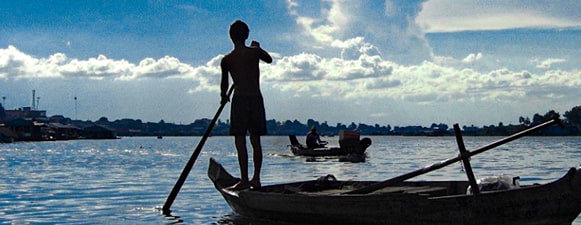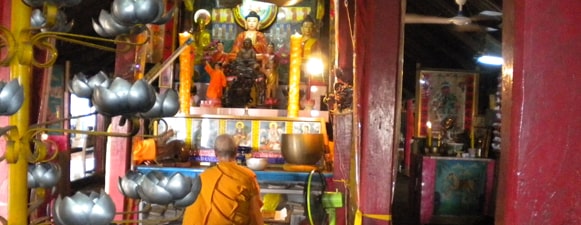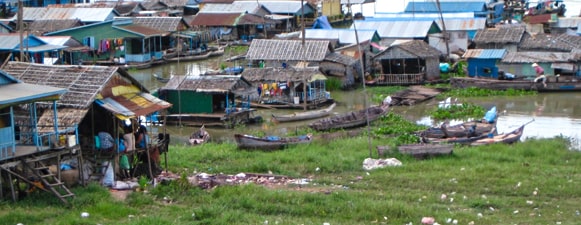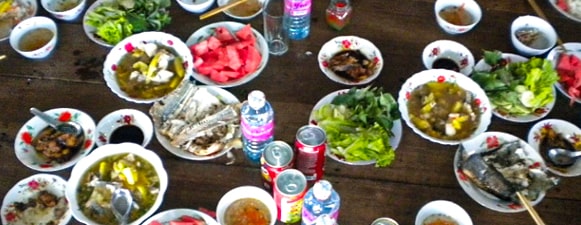Victims Representation
Internal Rule 23 at the Extraordinary Chambers in the Courts of Cambodia (ECCC, or Khmer Rouge Tribunal) allows victims to participate as civil parties in criminal proceedings against senior leaders from the Khmer Rouge regime and those most responsible. Civil parties have a role to participate by “supporting the prosecution”, and the right to seek “moral and collective reparations”.
In giving victims of mass crimes the right to participate as civil parties alongside the criminal proceedings, this provision has extended victims’ rights in an unprecedented way, internationally. However, the Internal Rules have, since 2007, been amended by various plenaries of the ECCC’s Rules and Procedure Committee to introduce limitations to the nature, scope and rights of civil parties, according to the Courts / Judges, in response to the unanticipated volume of victims who applied to participate in Case 002 of the court’s proceedings, against IENG Sary, IENG Thirith, NUON Chea and KHIEU Samphan (Case 002 defendants) at the ECCC, and a need to ensure the efficient conduct of the case before the ECCC’s Trial Chambers.
As at 14 February 2010, the ECCC’s Victims Support Section has received over 8000 Victim Information Forms, with around half of these from civil party applicants. In August and September 2010, the Co-Investigating Judges issued mass decisions concerning admissibility of all civil party applicants, where they rejected nearly 50%of the Applicants. Civil Party Lawyers appealed, resulting in admissions to 98% of the civil parties previously deemed inadmissible.
Vietnamese Minority Genocide Victims
Since 2008, outreach staff from the Khmer Kampuchea Krom Human Rights Association and lawyers from Legal Aid of Cambodia have worked with ethnic Vietnamese individuals applying to participate as civil parties at the ECCC. As part of the application process for victims of the Khmer Rouge regime to participate as Civil Parties, applicants completed the ECCC Victim Information Form, and in doing so, provided a detailed account of the crimes they suffered during the period of the Democratic Kampuchea (Khmer Rouge regime). Members of the group recounted that during this period, they were persecuted, deported out of Cambodia and targeted for genocide – attacks carried out with an intention to destroy the group, in whole or in part.

Ethnic minority Vietnamese on the floating villages in Kampong Chhnang Province (photo taken 2010), Cambodia – these villages no longer exist due to forced relocations of the community in recent years.

Testimonial Therapy provided to victims of the Cambodia’s genocide by NGO, TPO, helps victims restore their dignity through acknowledgement of their experiences (March 2010).
In September 2010, the ECCC’s Office of the Co-Investigating Judges charged Ieng Sary, Ieng Thirith, Khieu Samphan and Nuon Chea, the four Senior Leaders accused in the Case File 002, with genocide against the Vietnamese, deportation of the Vietnamese as a crime against humanity and crimes specific to the treatment of the Vietnamese.
In January 2010, the Office of the Co-Investigating Judges, in combination with rejecting the Civil Party Lawyers’ Request For Supplementary Investigations regarding Genocide Of The Khmer Krom and The Vietnamese (see above link), also issued the first decision on civil party admissibility, essentially deeming all the ethnic Vietnamese applicants inadmissible, on the basis that the harm they suffered was not related to the “scope of judicial investigations”.

The floating villages on the land during the dry season, Kampong Chhnang, Cambodia, 2010.

Sharing a meal with ethnic Vietnamese minority clients from
the floating villages in Kampong Chhnang after a client group
conference, July 2010.
This decision was appealed by Civil Party Lawyers to the Pre-Trial Chamber, which upheld the decision of the Co-Investigating Judges. In June 2011, following years of appeals over their status as victims of atrocity crimes, and their admissibility as Civil Parties (conducted by international lawyer, Ms Lyma NGUYEN and national lawyers, Mr NY Chandy and Mr SAM Sokong from Legal Aid of Cambodia), the ECCC’s Pre-Trial Chamber admitted ethnic Vietnamese Civil Parties into proceedings in Case 002 against Nuon Chea, Ieng Sary, Khieu Samphan and Ieng Thirith (the latter having been found unfit to stand trial in September 2012).
The appeals conducted in 2009 and 2010 resulted in a decision to admit all ethnic Vietnamese applicants as Civil Parties into the Case 002 proceedings, including those originally deemed inadmissible. The Pre-Trial Chamber also decided, on its own accord, to admit Khmer Krom applicants who were originally deemed inadmissible, but who did not lodge further appeals. The Pre-Trial Chamber noted that its previous decisions on Civil Party Appeals filed against Co-Investigating Judges’ orders on admissbility, had the effect of excluding Vietnamese and Khmer Krom applicants on erroneous legal grounds.
In granting them Civil Party status, the tribunal recognised these ethnic Vietnamese survivors as victims who have a standing to seek “moral and collective” reparations before the ECCC, having suffered personal and direct harm as a result of crimes committed by Senior Leaders of the Khmer Rouge regime.
Reparation
As a significant number of these Civil Parties have sought access to “Cambodian nationality” as a moral and collective reparation connected with the harm they suffered following forced deportations out of Cambodia in 1975, efforts have been made to assess these civil claims and address this issue within the framework of the ECCC’s “moral and collective reparations” mandate and beyond.
Altogether there have been 43 ethnic Vietnamese Civil Parties admitted by the court from Kampong Chhnang province, represented by national lawyer, Mr SAM Sokong, from Legal Aid of Cambodia and international co-lawyer, Ms Lyma NGUYEN. These Civil Parties have formally raised a claim for recognition of, or access to, Cambodian nationality at the ECCC as a reparative measure for damages suffered as a direct result of their forced deportation out of Cambodia, by the Khmer Rouge regime.
“On 16 November 2018, the Trial Chamber found Nuon Chea guilty of genocide against both the Cham and Vietnamese minority groups and found Khieu Samphan guilty of genocide against the Vietnamese minority group. In relation to the genocide against the Cham Muslim minority, Nuon Chea was found guilty of genocide through the mode of liability of superior responsibility rather than as part of a joint criminal enterprise. The Chamber found that Khieu Samphan was not sufficiently senior to be convicted under superior responsibility.
Both were found guilty of Grave Breaches of the Geneva Conventions and Crimes Against Humanity of murder, extermination, deportation, enslavement, imprisonment, torture, persecution on political, religious and racial grounds, other inhumane acts of attacks on human dignity and of acts characterised as enforced disappearances, forced transfer, forced marriage and rape within those marriages. The Trial Chamber sentenced both Accused to life imprisonment, which will be merged with their already confirmed life sentences from Case 002/01. Nuon Chea passed away on 4 August 2019.
The Trial Chamber also confirmed 14 proposed reparations projects, including the project “Legal and Civic Education for Minority Civil Parties”, proposed by Minority Rights Organisation (MIRO) together with Ms Lyma Nguyen and Mr Sam Sokong on behalf of the ethnic Vietnamese minority Civil Parties who participated in Case 002/02 at the ECCC.
The purpose of the project is to lay the foundations for restoring the identity of civil parties as long-term members of Cambodian society by offering a legal and civic education program to ethnic Vietnamese civil parties. As such, the project contributes to the long-term objective of (re-)integrating affected minority populations and their children into Cambodian society. In doing so, the project represents a measure to address harm suffered as a direct result of genocide and crimes against humanity, and to prevent further violent atrocities in future.”

